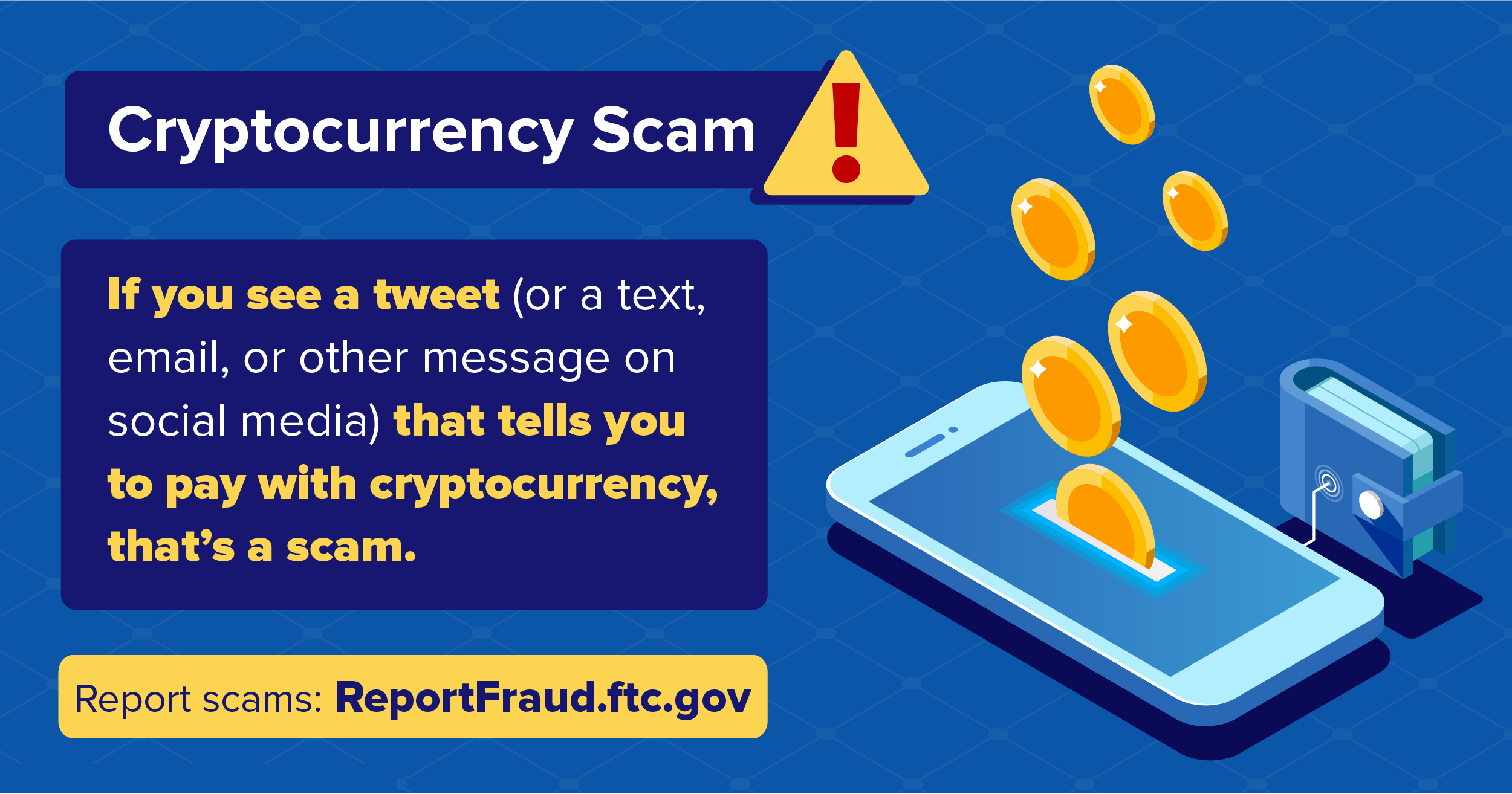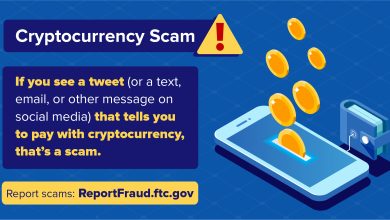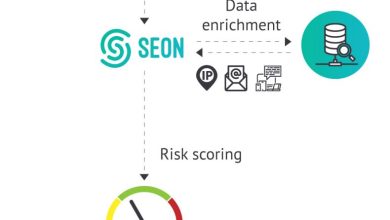What to Do if You’ve Been Scammed in a Cryptocurrency Deal: Step-by-step action plan

- Recognizing the signs of a cryptocurrency scam
- Steps to take immediately after realizing you’ve been scammed
- How to report the scam to the appropriate authorities
- Seeking legal advice and assistance in recovering your funds
- Protecting yourself from future cryptocurrency scams
- Educating others on how to avoid falling victim to similar scams
Recognizing the signs of a cryptocurrency scam
When dealing with cryptocurrency, it is crucial to be aware of the signs of a potential scam. Here are some red flags to watch out for:
- Unsolicited offers that seem too good to be true
- Pressure to act quickly or urgently
- Requests for personal information or access to your wallet
- Guarantees of high returns with little to no risk
- Complex investment strategies that are difficult to understand
By recognizing these warning signs, you can protect yourself from falling victim to a cryptocurrency scam. If you have already been scammed, it is important to take immediate action to minimize the damage.
Steps to take immediately after realizing you’ve been scammed
Immediately after realizing you have fallen victim to a cryptocurrency scam, it is crucial to take swift action to mitigate any further damage. Here are the steps you should follow:
- **Cease all Communication:** The first step is to stop all communication with the scammer. Do not respond to any further messages or requests for money.
- **Document Everything:** Keep a record of all correspondence, transactions, and any other relevant information related to the scam. This documentation will be valuable when reporting the incident.
- **Contact Your Bank or Financial Institution:** Inform your bank or financial institution about the scam. They may be able to help you recover any lost funds or prevent further unauthorized transactions.
- **Report the Scam:** Report the scam to the appropriate authorities, such as the Federal Trade Commission (FTC) or the Securities and Exchange Commission (SEC). Provide them with all the details and documentation you have gathered.
- **Change Your Passwords:** If you shared any sensitive information with the scammer, change your passwords immediately to prevent any further unauthorized access to your accounts.
- **Educate Yourself:** Take this experience as a lesson and educate yourself about how to spot and avoid cryptocurrency scams in the future. Stay informed about the latest scam tactics and protect yourself from falling victim again.
By following these steps promptly, you can increase the chances of recovering your funds and prevent future scams. Remember to stay vigilant and cautious when dealing with cryptocurrency transactions to avoid falling prey to scammers.
How to report the scam to the appropriate authorities
To **report** the **scam** to the **appropriate authorities**, you should follow these steps:
1. **Contact** your **local** law enforcement agency or consumer protection bureau. They can **assist** you in **filing** a **report** and **investigating** the **incident**.
2. **File** a **complaint** with the **Federal Trade Commission (FTC)**. The FTC **monitors** **fraudulent** activities and **provides** **resources** for **victims** of **scams**.
3. **Reach** out to the **Consumer Financial Protection Bureau (CFPB)**. They **handle** **complaints** related to **financial** **transactions** and can **offer** **guidance** on **how** to **proceed**.
4. **Inform** the **Securities and Exchange Commission (SEC)** if the **scam** **involved** **securities** or **investment** **fraud**. They **regulate** the **financial** **markets** and **enforce** **laws** **protecting** **investors**.
5. **Report** the **incident** to the **Internet Crime Complaint Center (IC3)**. They **collaborate** with the **FBI** to **investigate** **cyber** **crimes** and **provide** **support** to **victims**.
By **reporting** the **scam** to the **appropriate authorities**, you can **help** **prevent** others from **falling** **victim** to **similar** **frauds**. It is **important** to **act** **swiftly** and **cooperatively** with **law** **enforcement** to **increase** the **chances** of **recovering** your **lost** **funds**.
Seeking legal advice and assistance in recovering your funds
If you have fallen victim to a cryptocurrency scam and have been unable to recover your funds through other means, seeking legal advice and assistance may be your best course of action. A legal professional specializing in financial fraud and cryptocurrency cases can provide you with the guidance and support you need to navigate the complex legal process of recovering your lost funds.
One of the first steps in seeking legal assistance is to research and find a reputable lawyer or law firm with experience in handling cryptocurrency scams. Look for a lawyer who has a proven track record of success in recovering funds for victims of similar scams. You can start by searching online for lawyers specializing in financial fraud or cryptocurrency cases, or ask for recommendations from friends, family, or other victims of cryptocurrency scams.
Once you have found a potential lawyer or law firm, schedule a consultation to discuss your case and determine the best course of action for recovering your funds. During the consultation, be sure to provide all relevant information and documentation related to the scam, including any communication with the scammer, transaction records, and any other evidence you have gathered.
Your lawyer will then work with you to develop a legal strategy for recovering your funds, which may involve filing a lawsuit against the scammer, seeking a court order to freeze the scammer’s assets, or working with law enforcement to investigate and prosecute the scammer. Your lawyer will also advise you on the best course of action for protecting your rights and interests throughout the legal process.
In addition to providing legal representation, your lawyer can also help you navigate the complexities of the cryptocurrency market and ensure that you are taking the necessary steps to protect yourself from future scams. By working with a knowledgeable and experienced legal professional, you can increase your chances of recovering your funds and holding the scammer accountable for their actions.
Protecting yourself from future cryptocurrency scams
Protecting yourself from future cryptocurrency scams is crucial in the digital age. Here are some steps you can take to safeguard your investments:
- Research before investing: Always conduct thorough research on any cryptocurrency project before investing your money. Look into the team behind the project, the technology they are using, and the problem they are trying to solve.
- Use reputable exchanges: Stick to well-known and reputable cryptocurrency exchanges to buy and sell your digital assets. Avoid using unknown or unregulated platforms that may be prone to scams.
- Enable two-factor authentication: Add an extra layer of security to your cryptocurrency accounts by enabling two-factor authentication. This will help protect your funds in case your password is compromised.
- Keep your private keys safe: Your private keys are the access codes to your cryptocurrency holdings. Make sure to store them securely offline and never share them with anyone.
- Stay informed: Stay up to date with the latest cryptocurrency news and trends to be aware of any potential scams or fraudulent activities in the market. Knowledge is your best defense against scammers.
By following these steps, you can reduce the risk of falling victim to cryptocurrency scams and protect your investments in the long run.
Educating others on how to avoid falling victim to similar scams
It is crucial to educate others on how to avoid falling prey to similar scams in cryptocurrency deals. By sharing your experience and the steps you took to address the situation, you can help others recognize warning signs and protect themselves from fraudulent schemes. Here are some ways you can educate others:
- Share your story on social media platforms or online forums to raise awareness about common cryptocurrency scams.
- Host informational sessions or webinars to teach people how to conduct due diligence before investing in cryptocurrencies.
- Collaborate with local authorities or consumer protection agencies to develop educational materials on cryptocurrency fraud prevention.
- Encourage friends and family members to research and verify the legitimacy of cryptocurrency offers before making any transactions.
By taking proactive steps to educate others, you can help create a more informed and vigilant community that is less susceptible to falling victim to cryptocurrency scams. Remember, prevention is always better than cure when it comes to protecting your investments and financial security.



